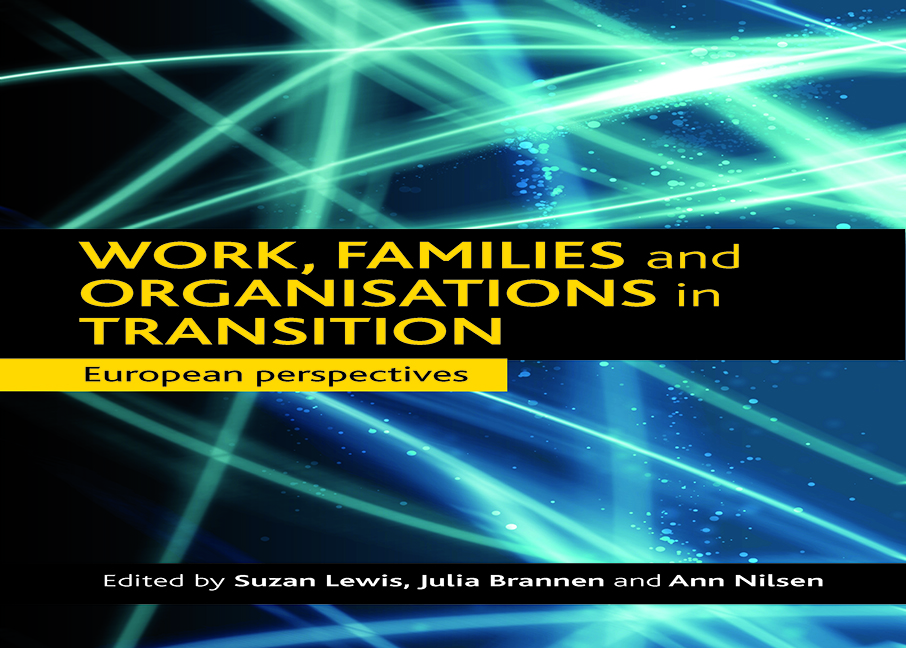Book contents
- Frontmatter
- Dedication
- Contents
- Acknowledgements
- Notes on contributors
- one Work, family and organisations in transition: setting the context
- two Research design and methods: doing comparative cross-national research
- Part One Public sector organisations
- Part Two Private sector organisations
- Part Three Comparisons
- Appendix
- References
- Index
three - Working parenthood in a social services context: a UK case
Published online by Cambridge University Press: 16 July 2022
- Frontmatter
- Dedication
- Contents
- Acknowledgements
- Notes on contributors
- one Work, family and organisations in transition: setting the context
- two Research design and methods: doing comparative cross-national research
- Part One Public sector organisations
- Part Two Private sector organisations
- Part Three Comparisons
- Appendix
- References
- Index
Summary
This chapter is about the experiences of working parents with young children in the UK as they are located in and experience one particular kind of workplace – a social services department situated in a metropolitan area. The chapter's focus includes how the organisation was changing, its particular characteristics in relation to its local environment, its employment conditions and workplace policies, the practices and perspectives of its managers, and the ways in which these impact on the lives and experiences of working parents. It also has a methodological slant, describing and discussing how context is made manifest through the research methodology. In particular, it examines the use of the focus group method by which the accounts of working parents were elicited in the workplace studied and how the dynamics of the focus groups speak to people's experiences as both employees and parents. From a methodological perspective, it is important that the ‘results’ of a study are not divorced from the context of its research methods and the settings in which research participants’ experiences and views are elicited (Brannen, 2004). In presenting this analysis, attention is paid to how ‘talk’ about work–family issues was generated through the dynamics of the group and the methodological encounter (see also Brannen and Pattman, 2005).
The first part of the chapter sketches the organisational context, including change and trends in the public sector more generally, and the workplace policies for parents, drawing on the literature and available data and documentation about the local authority and social services in question at that time (2003). Second, this is followed by an analysis of interviews carried out with managers at all the many levels of the social services department concerning their views about how the organisation accommodated employees’ family responsibilities when they had young children while also responding to the need to manage public resources efficiently (Rapoport et al, 2002; Lewis and Smithson, this volume). Third, the chapter explores the main themes generated in the focus group discussions with working parents in social services who discussed issues related to managing their family responsibilities.
The organisational context
Social services in the UK are the responsibility of local government (referred to as a local authority or council). Directors of social services are responsible to chief executives of local authorities and elected councillors who form the local authority's social services committee.
- Type
- Chapter
- Information
- Work, Families and Organisations in TransitionEuropean Perspectives, pp. 31 - 48Publisher: Bristol University PressPrint publication year: 2009



